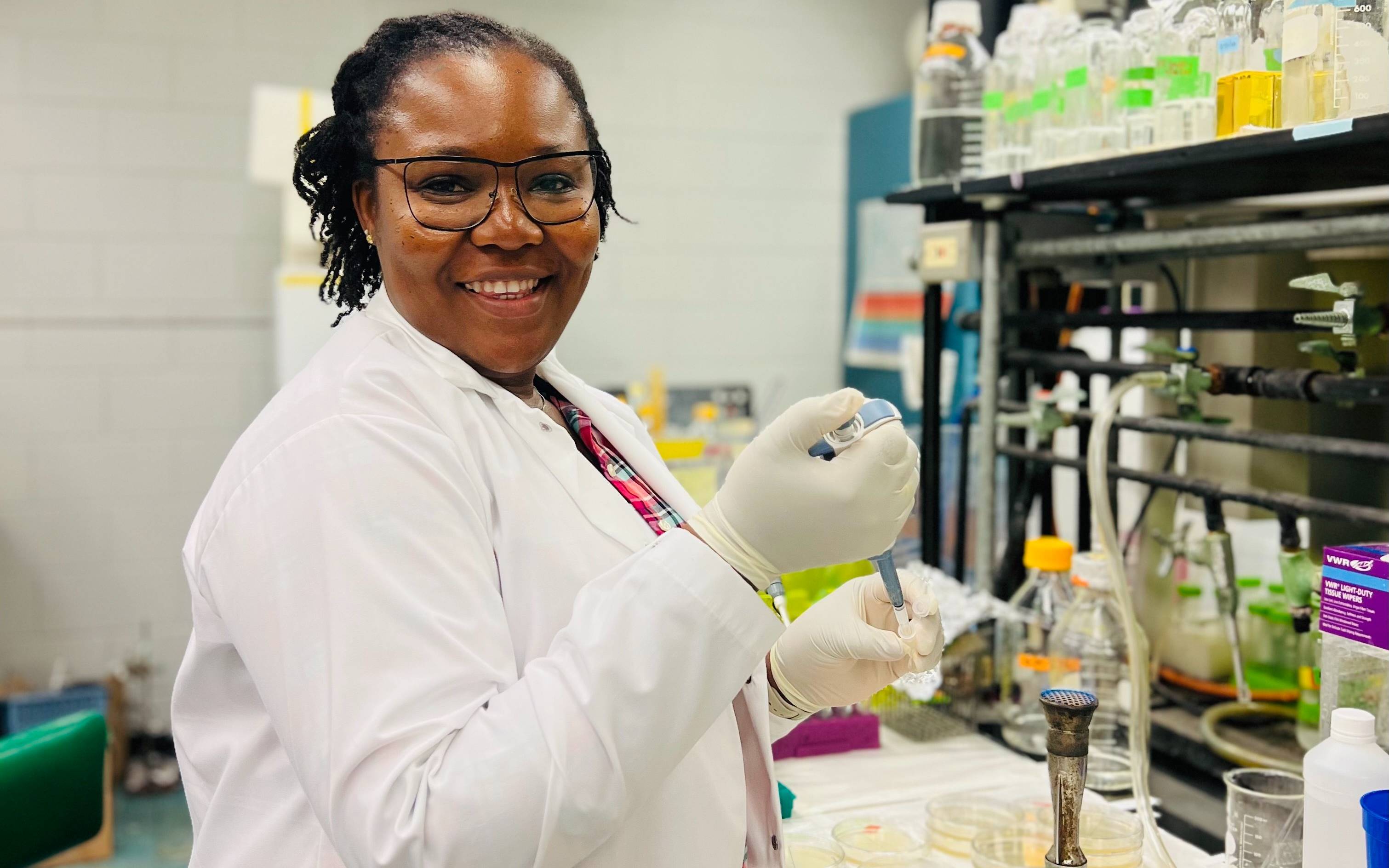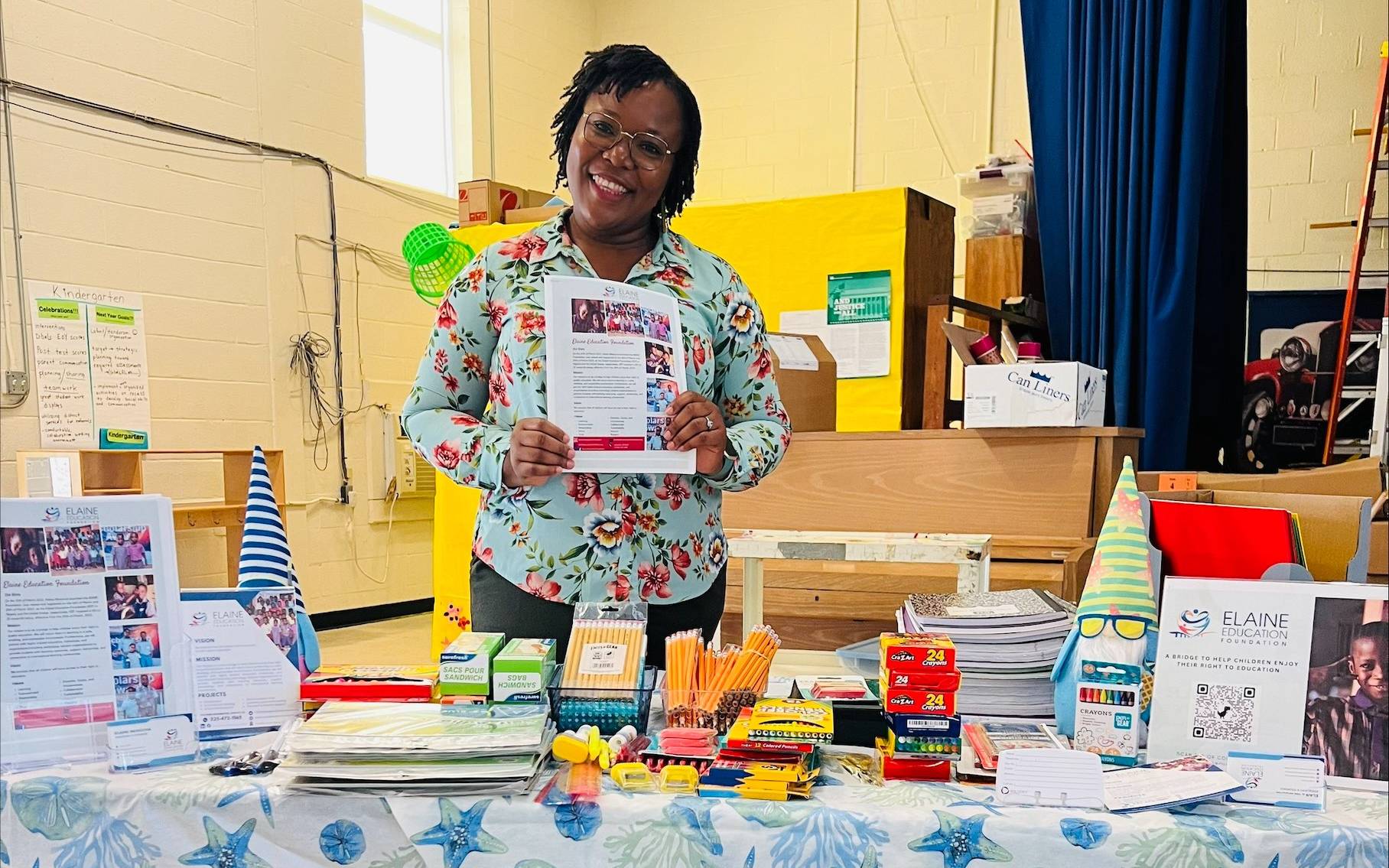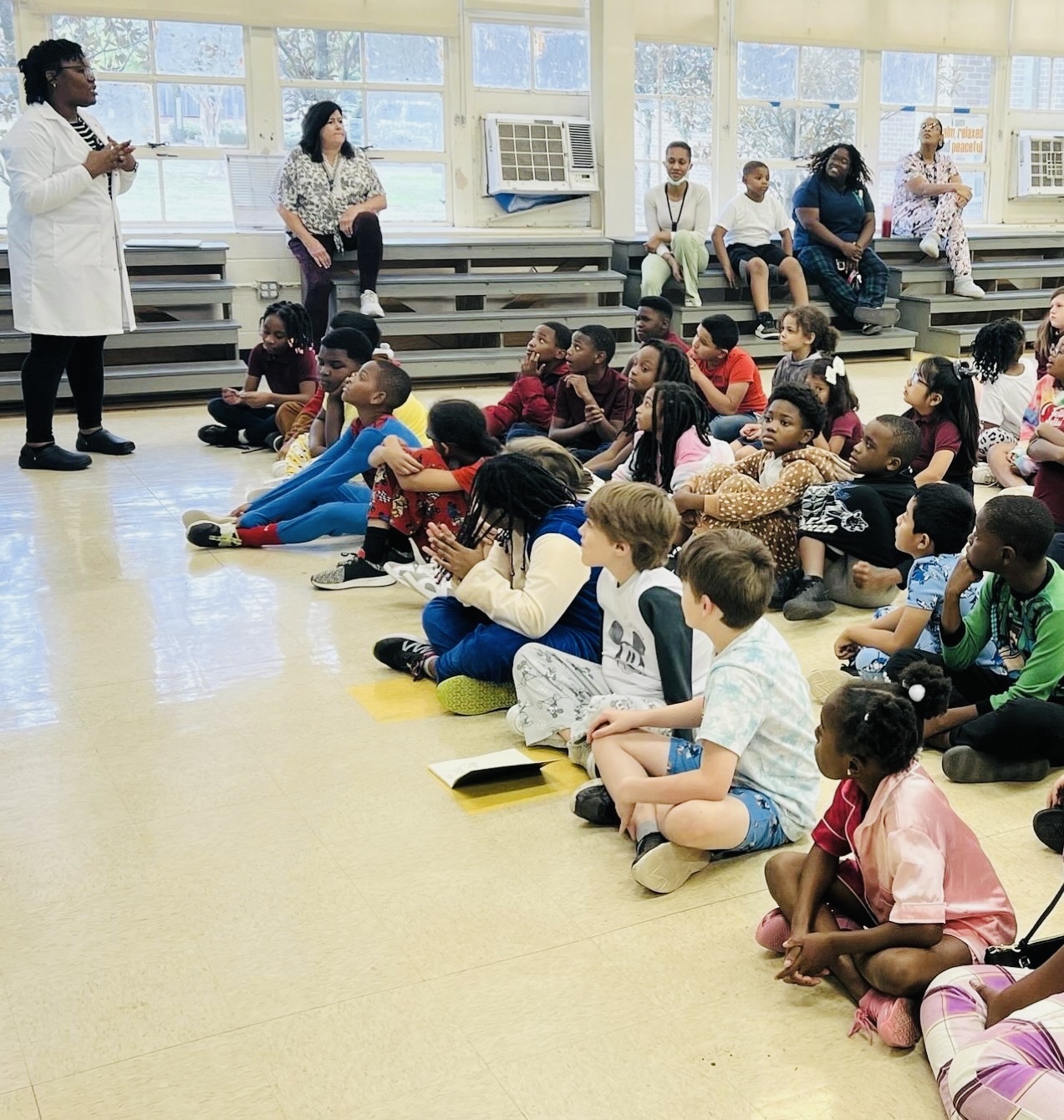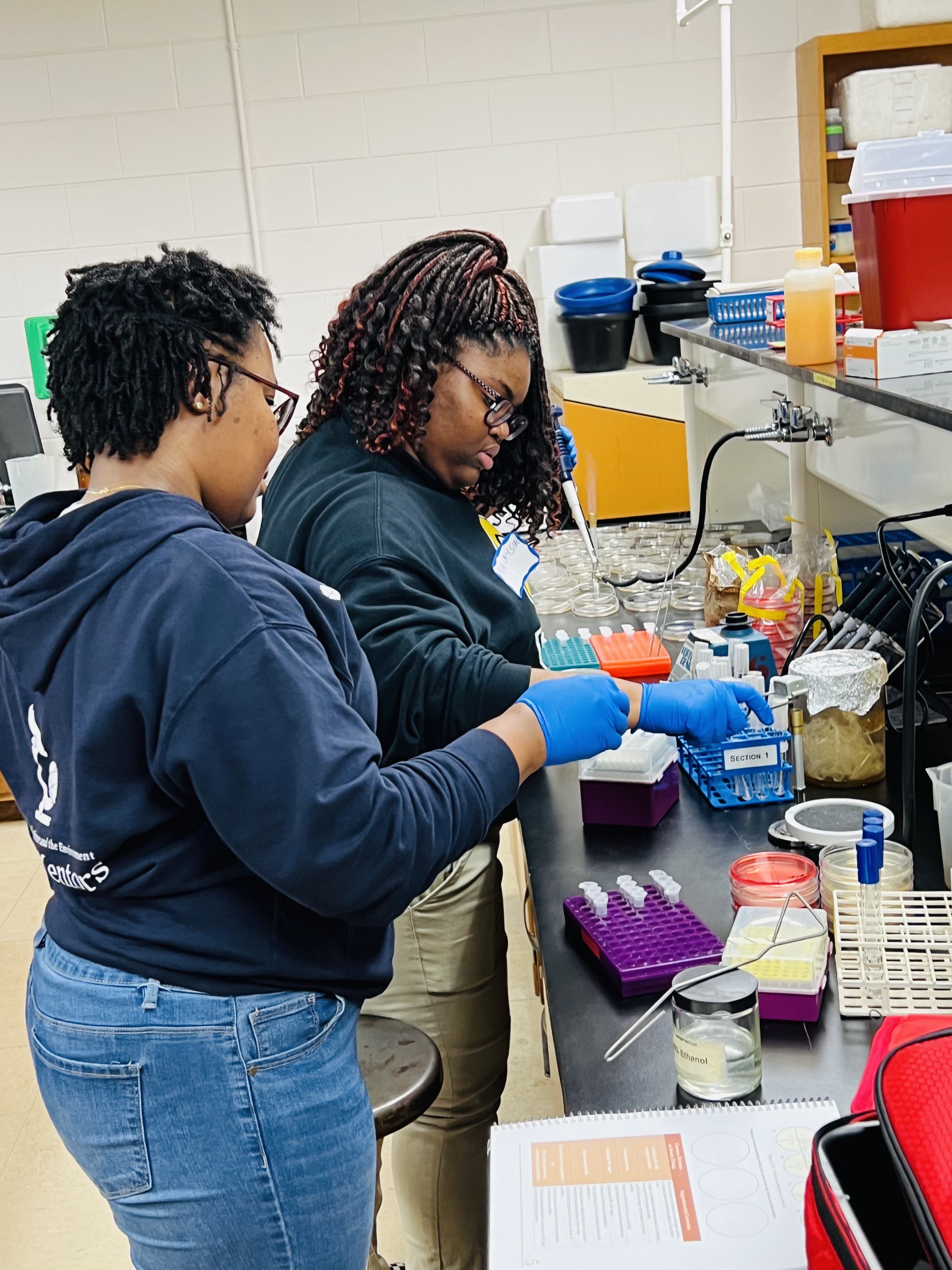International Day of Women and Girls in Science: A STEM Journey from Nigeria to the World
February 11, 2024

Elaine Nkwocha is a PhD student in the Department of Biological Sciences. In this blog, she recounts her inspiring journey from Nigeria, navigating personal tragedy, familial expectations, and educational challenges to pursue her passion for STEM, ultimately becoming an advocate for diversity and inclusion in science education.
By Elaine Nkwocha
During my time in junior high school in Nigeria, I pursued both STEM and non-STEM subjects as required, excelling in all areas. However, I found myself particularly drawn to STEM courses due to their hands-on and collaborative nature. Despite not living with my parents at the time, I distinctly remember my father’s desire for me to become a medical doctor, following in his footsteps. My mother, too, was a healthcare worker, holding a nursing degree with a specialization in nutrition. She worked for the Ministry of Health to promote breastfeeding in Abia State, Nigeria, through various outreach programs and television appearances.

In 2022, Elaine established the Elaine Education Foundation with the mission of bridging the educational gap and ensuring that all children, especially those least likely to receive an education, have access to quality education and the opportunity to thrive.
My parents separated when I was just a child, and my mom gained full custody of my siblings and me. However, tragedy struck a few years later when my mother passed away in a plane crash during a work trip, when I was only nine years old. Following her death, we moved in with my grandmother, a midwife who operated a maternity clinic in the shorter wing of our L-shaped home. Although most of her patients were women who came to give birth, some sought treatment for various reasons. After school, I would always join my grandmother at her clinic, where I would watch her tend to patients while their small children waited and played outside.
As I observed my grandmother’s patients, I began to question why some treatments, primarily antibiotics, were ineffective and why patients kept returning for further care. Additionally, I took it upon myself
to engage the younger children who accompanied their mothers to the clinic, teaching
them basic mathematics and English. This experience made me fall in love with teaching
and inspired a desire to provide an environment conducive to others’ learning.
All these experiences, including my fascination with science and my interest in understanding
the interplay of host-pathogen interactions and antibiotic resistance, motivated me
to continue pursuing STEM courses throughout my senior high school years. In Nigeria,
students were given the option to specialize in STEM or non-STEM tracks, with each
class assigned to groups ranging from A to D. Students in group D, where I was placed
due to my outstanding performance in junior high, took all STEM subjects along with
English classes. Being part of this class — the equivalent to a gifted class in the
U.S. — not only boosted my confidence but also solidified my identity as a STEM enthusiast.

Through the Elaine Education Foundation, Elaine offers science outreach activities at LaSalle Elementary School in Baton Rouge and also provides essential school supplies to support students’ education.
I was particularly inspired by my chemistry teacher, who passed away in 2023, and instilled in me a love for the subject through her passionate and engaging teaching style. She encouraged hands-on experimentation and even initiated an out-of-the-classroom research project. This project aimed to utilize locally sourced materials to reduce production costs, and I eagerly participated alongside two other girls. Through this project, we had the opportunity to represent our school and state in both statewide and nationwide competitions, where we proudly brought home awards. Beyond excelling in STEM, I started applying the skills (including problem-solving, critical thinking, and teamwork) I gained to other areas of life and took up several leadership positions.
Similarly, my mathematics teacher played a pivotal role in my academic journey. He
assigned us to mentor younger students each morning before their classes began, addressing
any questions they had on their assignments. Additionally, we were tasked with reviewing
specific topics to reinforce their understanding of mathematical concepts. This tutoring
experience further solidified my identity as both a STEM student and a STEM educator.
During my holidays, I continued teaching outside of school and volunteered as a substitute
teacher at my dad’s brother’s high school, which his wife managed. I spent several
years living with their family before completing high school.
Despite these successes, navigating through high school without parental guidance was challenging, and I often found myself lacking essential resources such as textbooks. Even participating
in STEM activities held during school breaks was nearly impossible, due to the chores
I had to do in the various homes where I lived.
When applying for college, I didn’t have someone to guide me through deciding what to study or which school to attend. Nevertheless, my determination to pursue my interests in microbiology remained unwavering, leading me to choose this field of study despite familial pressure to pursue medicine.
College, however, wasn’t quite what I had anticipated, and there were moments when I questioned whether I should have pursued education instead. There were few opportunities for hands-on activities and collaborative projects. Biochemistry classes, in particular, delved into abstract concepts, and I often found myself grappling with disinterest, yet still managing to earn an “A.”

Elaine serves as a STEM Mentor in the LSU EnvironMentor program, which offers high school students engaging hands-on science activities aimed at igniting their interest in the field of science.
It wasn’t until nearing the end of my undergraduate studies that two internship experiences reignited my motivation and passion for my STEM field. The internships helped me connect microbiology content to its real-life applications through hands-on lab experiences and fieldwork. “At last!” I thought to myself as I finally worked with STEM professionals in various areas of microbiology. “Now it feels real!” I then returned to complete my final year of courses with new enthusiasm, taking classes and conducting research in a laboratory focused on antibiotic resistance. After graduating from college, I pursued two master's degrees: one in public health and another in molecular biology and viral pathology.
The sum of these experiences has kept me in STEM today and made me an education advocate. I am committed to ensuring that every child has access to quality education through
initiatives like the Elaine Education Foundation (EEF). Through scholarships, mentoring, out-of-school learning, and support for teachers,
parents, and schools worldwide, I aim to make a meaningful difference in the lives
of young learners.
My journey is also coming to a full circle as I now embark on a graduate program in
science education, merging my passion for education and science. This interdisciplinary
program has rapidly expanded my understanding of STEM education and the multifaceted
challenges students encounter in their STEM-related pursuits, much like I once did.
Looking ahead, my primary commitment is to promote a positive attitude towards STEM among my students, emphasizing inclusivity and equity, particularly for girls and women. I aim to create
empowering learning environments where all students feel confident and capable in
STEM fields. My goal is to ensure that everyone, regardless of background, can enrich
their STEM identity in and out of the classroom. Reflecting on my journey, I am grateful
for the experiences and people who have influenced my path, and I hope to make a difference
in people's lives just as much as was done for me.